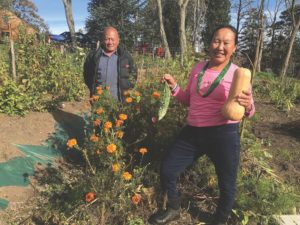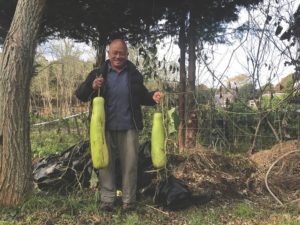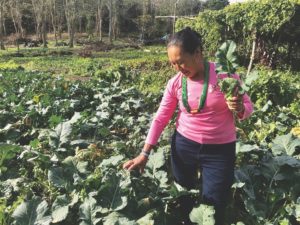TRURO — The sun is setting at an angle that casts a cool shade over three stools in the grass in front of a garage-like barn, where piles of produce rest in coolers. Beyond the grassy strip, the building’s shadow ends, giving way to a field of varied crops, colorful and buzzing with foraging bees in the late June sun.
Digree Rai and her son David, who tend this abundance — Down Home Farm in Truro — with husband and father Bhala, take a break from their work to talk with a reporter, David interpreting Digree’s Nepalese and offering his own thoughts in English.
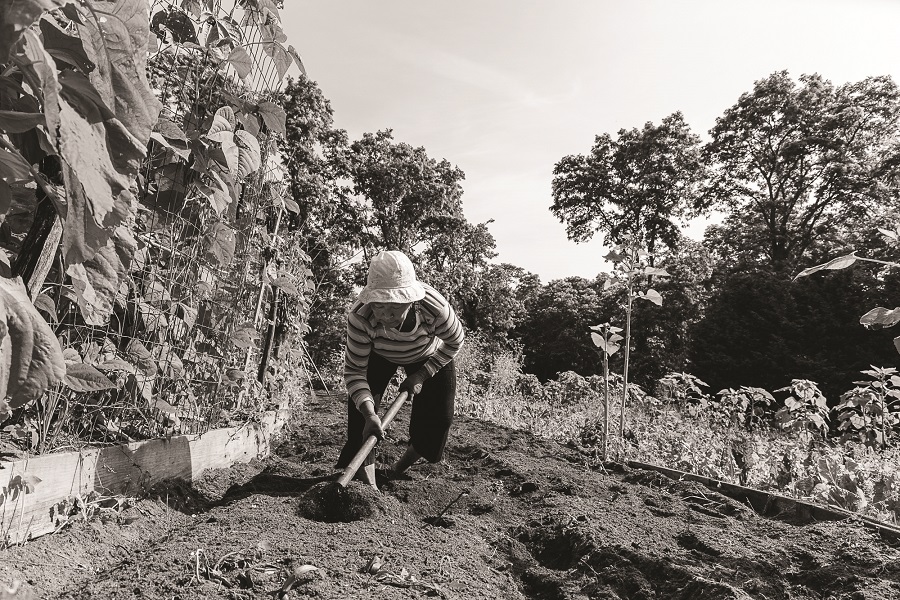
Down Home Farm was made possible by their landlords, Digree says. Ron Singer has provided the land — perhaps an acre and a half, Singer estimates — free of charge to the family since 2011.
Bhala Rai first arrived in this country in 2006, invited by Truro resident Nancy Pease, who had met him while trekking in the Himalayas, according to a story by Sophie Ruehr about the family’s trajectory, published in the Independent in 2019. He applied for political asylum in 2010 and is now a U.S. citizen.
When Digree and David, the couple’s youngest son, joined Bhala in Truro in 2011, he was trying to make a living doing landscaping and gardening jobs, but it wasn’t really enough. Knowing that Bhala and Digree had farmed in Nepal, growing rice, wheat, and vegetables, Singer’s late wife, Janice Allee, suggested they start a farm as a steadier source of income, offering to lend a patch of land to the Rais for the purpose.
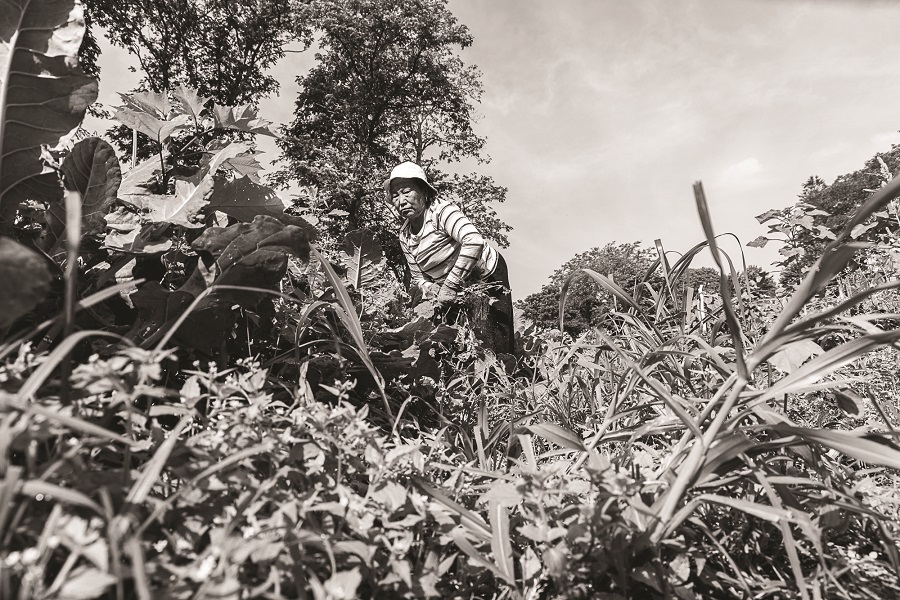
Bhala was already renting the family’s living space from Allee. Farming her land free of charge was a serendipitous opportunity, but it would require significant work.
To make the sandy, nutrient-poor Truro soil more arable, Digree and Bhala dug beds and filled them with soil and manure. They didn’t own machinery, Digree says, so they worked the land mostly by hand. They brought Nepalese technology to the Cape, as Bhala told Ruehr for the 2019 story, by constructing terraces along the grade to raise their vegetables and flowers in level beds. But 2019 was the first year they deployed a tractor.
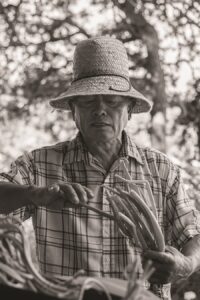
In spite of their experience, they found the quirks of land and weather here eccentric. Dave DeWitt of Dave’s Greens in Truro was instrumental in the Rais’ adjustment to Outer Cape farming, David Rai says. DeWitt helped them understand the characteristics of their parcel, teaching them what soils and fertilizers to use and when to plant each crop for prime production. “He continues to help us by giving us good advice to this day,” says David.
Digree finds the stretch from April to October hardest. It’s the heat and humidity she struggles with, she says. The Rais work every day during these months — tending crops and selling them at the farmers markets in Harwich, Wellfleet, Truro, and Provincetown.
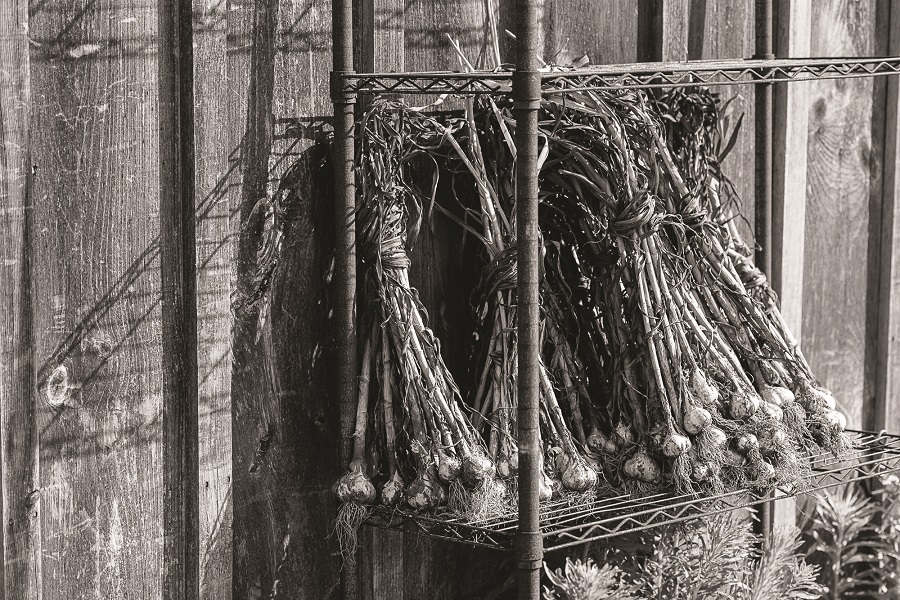
Sustainable CAPE, David says, has been an extraordinary help to the family and not just because the nonprofit introduced them to the Truro farmers market in 2013. Thanks to a creative arrangement conceived by the nonprofit’s director, Francie Randolph, the family has a produce stand alongside Sustainable CAPE’s offices.
There’s an afternoon of more work ahead, but Digree and David seem more grateful than exhausted. David says he’s optimistic about the future of local farming because he has watched demand grow for fresh, healthy, local produce. People at the markets want it, he says, and so do restaurants.

Now that Down Home is established, he says, the family hopes they can pass along the generosity they’ve received to a new generation of Outer Cape farmers. The only issue will be how they will find land.
